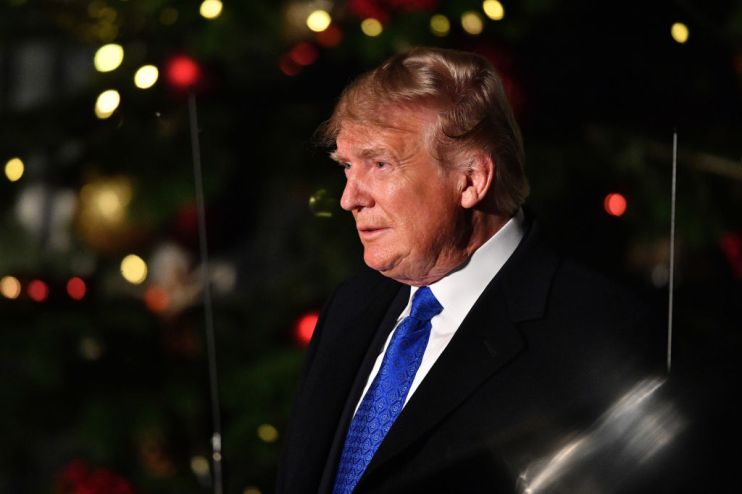British tech tax to tie up Trump trade talks

Tech bosses have warned that a digital services tax, included in the Conservative manifesto, could blow future US–UK trade talks off course.
US President Donald Trump this week threatened to impose tariffs of up to 100 per cent on some French goods, including cheese and wine, in retaliation to a similar tax passed into French law this summer.
Trump has criticised the levy for unfairly targeting US firms and today insisted in between Nato meetings in London that “if anyone was going to tax American companies it will be me”.
“They’re starting to tax other people’s products… therefore we’re going to tax their products,” he told reporters in the capital.
Read more: US threatens to slap France with tariffs over ‘burdensome’ digital tax
The escalating tensions have sparked concerns about a British digital tax promised in the Conservative party manifesto, which some fear could derail efforts to strike a wider US–UK trade deal.
“It is hard to see how a UK digital services tax proposal would not be viewed as open to a similar challenge from the US,” said Antony Walker, deputy chief executive of Tech UK.
But a Tory source told City A.M. the party would stick to its guns on the so-called tech tax — even if it put a much-heralded US trade deal at risk.
“If it’s a red line, it’s a red line, and we’ll walk away,” the source added.
The Labour party has also promised a tax on multinationals and tech giants, but is not expected to be as keen on a free trade deal with the US.
Russ Shaw, founder of Tech London Advocates, said the tech industry and international government must work together to establish new legislation.
“With all the turmoil and uncertainty around our global economy, protectionism is not going to solve the problem. Instead of unilateral action, we must find a solution based on a global digital tax that is consistent across the world,” he said.
Unilateral taxes such as those planned in France and the UK mark a step away from the international framework proposed by the OECD, which is currently under discussion until the end of January.
Read more: OECD targets tech giants as it shakes up global tax rules
France is set to impose a three per cent levy on digital companies with global revenues of more than €750m (£685m) while the UK’s plan, outlined last year by former chancellor Philip Hammond, proposes a two per cent levy on revenues of more than £500m.
Stock markets around the world reacted negatively to Trump’s ramped-up rhetoric, with comments yesterday that he might wait until after the US election in November 2020 before finalising a deal with China also shaking investor confidence.
It followed a decision on Monday to slap tariffs on Brazil and Argentina over what he called currency manipulation.
Trump’s busy 24 hours pushed the FTSE 100 down 1.75 per cent to its lowest closing level since October.
US markets also bled red, with the trade-sensitive and tech-heavy Nasdaq finishing 0.55 per cent lower. The S&P 500 fell 0.66 per cent, while the Dow dropped one per cent.
Bond yields fell as investors fled towards safe-haven assets. The yield on the US 10-year Treasury had its biggest fall since August, dropping as much as 12.5 basis points to 1.710 per cent.